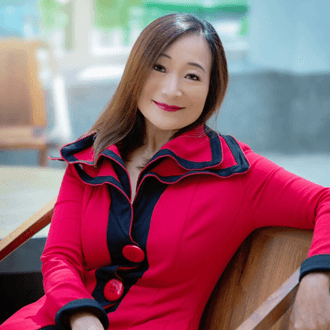March 17, 2022 Giles Kennedy v. Joel C. Abramson (Massachusetts Appeals Court 21-P-224)
The plaintiff, Giles Kennedy, was having lunch on the outdoor deck of Sundancers restaurant in Dennis when his plastic chair collapsed beneath him. Almost three years later, he sued the defendant owners of the restaurant, two real estate trusts and Horsefoot Harbor, Inc. (collectively, defendants or Sundancers), for negligence. A Superior Court judge allowed the defendants’ motion for summary judgment on the grounds that the plaintiff had not presented any evidence that Sundancers was negligent or expert testimony that the chair was defective. The plaintiff argues that the issue of the defendants’ negligence presented a jury question under the doctrine of res ipsa loquitur, which would permit a jury to infer that the chair would not ordinarily have collapsed unless the defendants were negligent. The Court agreed that case law plainly permits a jury to draw such an inference.
Background. On a late summer afternoon in 2015, the plaintiff and four of his friends arrived at the restaurant for lunch and seated themselves at a table on the outdoor deck. Shortly after a server took the group’s order, the plaintiff pushed his plastic chair away from the table to give himself more room. As he slid the chair back, one of its rear legs folded in half and the chair collapsed, throwing him backwards onto the deck. The plaintiff, who weighed about 190 pounds, managed to pull himself up, get another chair, and finish his lunch. He told the server what had happened, and the server reported the accident to the restaurant’s management. After the plaintiff and his friends finished their meals, the plaintiff went inside the restaurant and told the restaurant’s manager, Gary Abramson, about the accident. He also warned Abramson that other chairs on the deck might be faulty and said something to the effect that Sundancers should “look after” the broken chair. Abramson apologized and offered to reduce the plaintiff’s bill. The plaintiff declined the offer and paid the bill; he was in pain and just wanted to leave.
Res Ipsa Loquitir. The Plaintiff rellied on the doctrine of res ipsa loquitur to satisfy his burden of proof. Citing from the decision, “’This doctrine permits a trier of fact to draw an inference of negligence in the absence of a finding of a specific cause of the occurrence when an accident is of the kind that does not ordinarily happen unless the defendant was negligent in some respect and other responsible causes including conduct of the plaintiff are sufficiently eliminated by the evidence.’ Enrich v. Windmere Corp., 416 Mass. 83, 88 (1993), citing Restatement (Second) of Torts § 328D(1)(a) (1965) (Restatement [Second]). In a decision issued two years before Enrich, the Supreme Judicial Court approved a jury instruction stating the standard for applying res ipsa loquitur in somewhat different terms, requiring the plaintiff to show that “the instrumentality causing the accident was in the sole and exclusive control and management of the defendant[,]’ in addition to the accident being ‘of the type or kind that would not happen in the ordinary course of things unless there was negligence by the defendant’ Wilson, 409 Mass. at 805. …
Both the Restatement (Second), and the Restatement (Third) of Torts: Liability for Physical and Emotional Harm (2010) (Restatement [Third]), agree that ‘exclusive control’ is not an independent requirement. See Restatement (Second) § 328D comment g, at 161; Restatement (Third) § 17 comment b, at 185-186. Rather, the defendant’s exclusive control over the instrumentality that caused the accident ‘is merely one way of proving [the defendant’s] responsibility’ and eliminating other possible causes. Restatement (Second) § 328D comment g. See Wilson, supra at 806 (‘Even where absolute exclusivity in use is not evident, a jury may be reasonable in finding that the defendant’s control was sufficient to warrant an inference that the defendant was more likely responsible for the incident than someone else’). The doctrine of res ipsa loquitur has been applied to permit juries to infer the negligence in several cases involving collapsing chairs. ‘The breaking of the chair when it was being properly used for the purpose for which it was furnished warranted the jury in inferring at least that it was defective and unsafe; and it could be found that its condition would have been discovered before the accident, by proper inspection. . . . In the absence of explanation to account for the breaking of the chair the jury reasonably could infer, under all the circumstances, including the nature of the break, that the failure to discover and remedy the defect was due to negligence on the part of the defendant.” Callahan, 216 Mass. at 336. See Couris, 333 Mass. at 741-742 (although ‘plaintiff offered no evidence as to the cause of the seat’s collapse,’ jury could infer ‘that the unexplained collapse of the seat in question while being used in a normal manner was due either to defective construction or to lack of repair, and that its unsafe condition was more likely attributable to negligence on the part of the defendant than to some other cause); Bell v. Dorchester Theatre Co., 314 Mass. 536, 537-538 (1943).”
Holding. The Court held, “Because the record presents a number of material, disputed factual issues — including whether Sundancers provided the plaintiff with a defective and unsafe chair, whether the defect could have been detected with reasonable inspection, whether reasonable inspection was made, and whether factors other than the defendants’ negligence more likely caused the accident — summary judgment should not have entered. Were this case to go to trial on the record before us, the jury would be permitted, but not required, to infer that Sundancers was negligent under the principles of res ipsa loquitur.”
Giles Kennedy v. Joel Abramson
